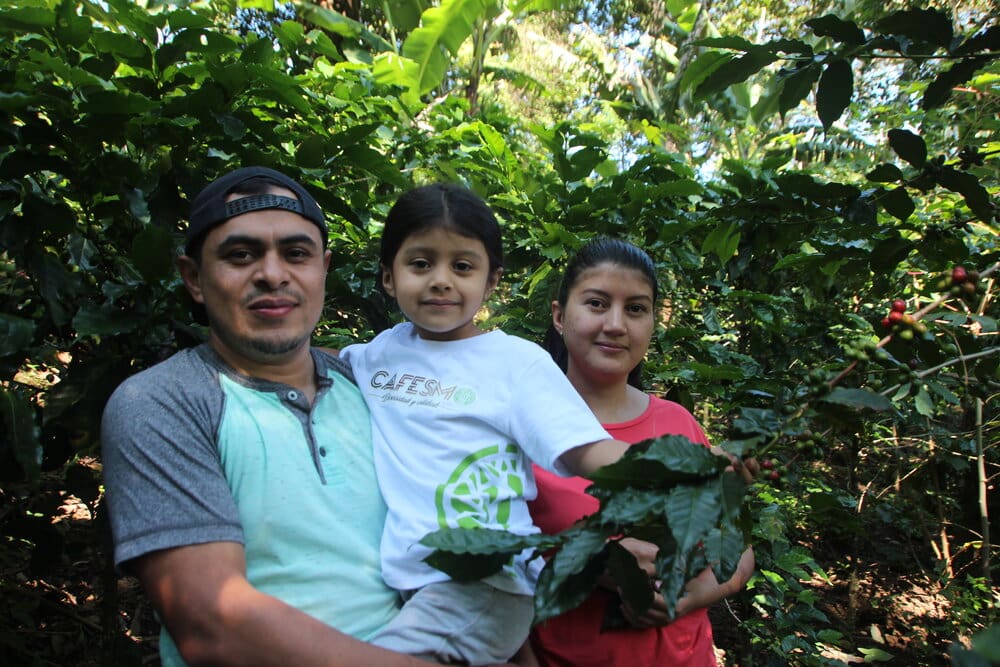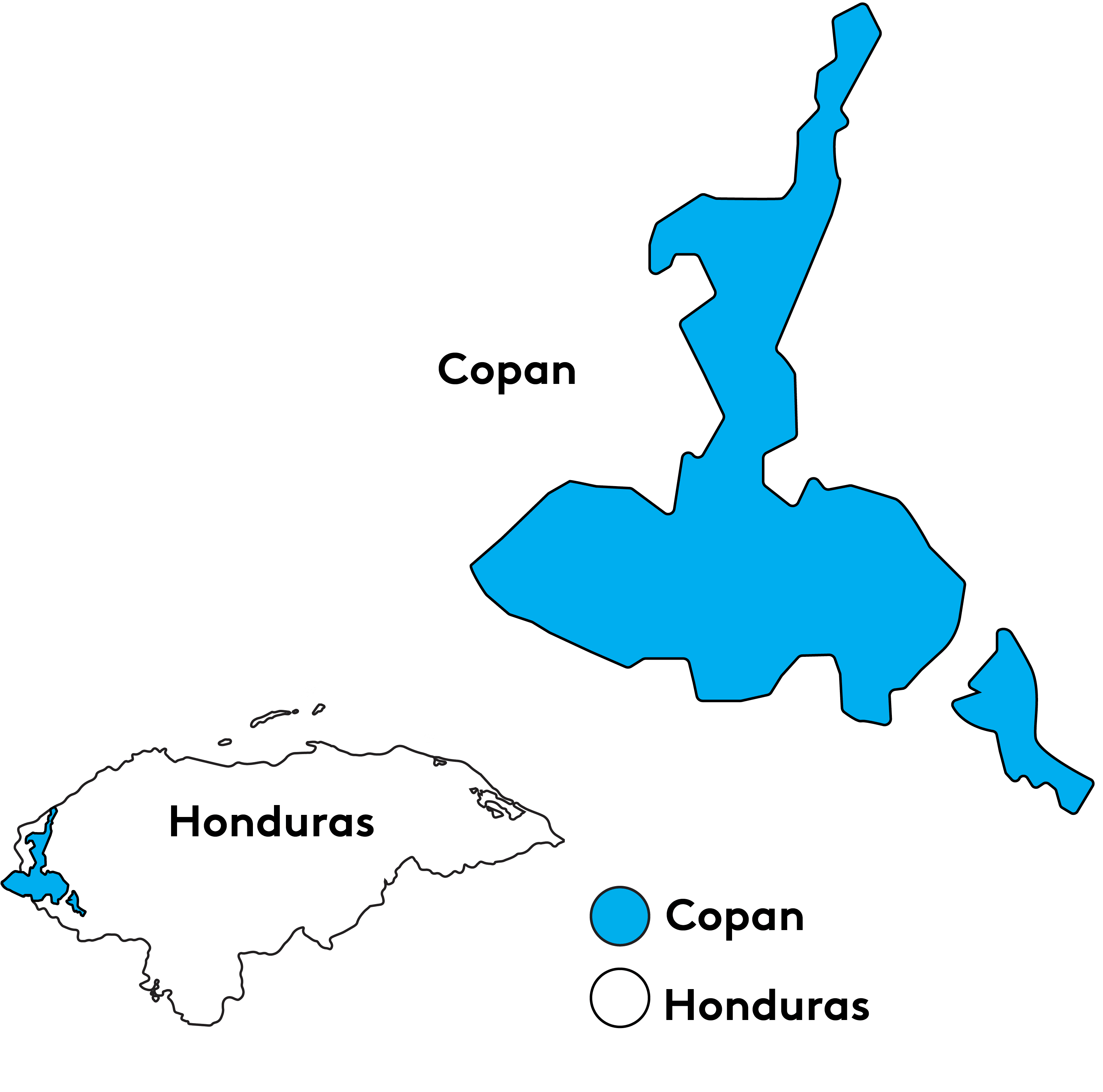Rosy Dariela Macia started her coffee venture with her husband, Roy Hernandez, by her side. As they shared, it wasn’t easy: “It wasn’t much; together we owned just 1.7 hectares when we started. That wasn’t enough to provide for our family, so we both also had to work full-time formal jobs and then worked on our land and on the preparation of our micro-lots at night and on the weekends; basically, whenever we could”.
In search of more help, they turned to their family of coffee producers, including their fathers and brothers, for assistance. In exchange, Roy and Rosy offered them the solar dryers they owned because, with three dryers, they had more than they needed based on their production. They compensated their family with free use of the dryers and helped them sell their coffees.
In 2016, they embarked on the journey of preparing specialty lots being part of CAFESMO, a 280+ member co-op located in the south of Honduras near the country’s borders with Guatemala and El Salvador. This organization was established formally in 2016 and began exporting specialty coffee in 2018. CAFESMO members are committed to improvement and quality, which is supported by the co-op through workshops for new and existing producers to help them learn about their harvest, post-harvest processing, choosing the right varieties for their farm, and more.
“Each year, we expand our volume as well as the quality and variety of our profiles. We focused mostly on washed coffees in the beginning, but soon became aware that a growing part of Cafesmo’s partners prefer natural lots. So, we diversified part of our preparation to natural lots, and to a lesser degree, anaerobic batches. The anaerobic preparations are riskier and require vacuum-sealed bags or barrels, which implies more work and an uncertain return on investment”.
Rosy left her formal job to raise their two girls and oversee the preparation processes of micro-lots. Rosy is passionate about expanding her knowledge, participating in workshops, to gain the technical knowledge to further boost the quality of their Farms’s lots.
“We were able to buy a bit of extra land with the proceeds from our micro-lots – 0.35 hectares – on which we have planted Catucaí Amarelo 2L. A rare variety for Honduras, which I selected after careful consideration and debate with Cafesmo founder Hidardo Hernández. Additionally, our goal is to plant another 2 hectares”.
The Hernandez family has increased the use of organic fertilizer, mostly pulp from their cherries, and planted additional trees to achieve a better shade/sun ratio. Their main goal for the future is to sell 70% of their harvest as SCA 86+ micro-lot coffees which requires excellent conditions and skills at all levels.
And there are personal dreams as well, of course. The family is deeply involved as volunteers and fundraisers in the renovation of the local soccer field, we suspect that Roy secretly would love for at least one of his little daughters to become a star player on that field one day! Rosy works hard to put Honduran women and their coffees on the map, as they are still too often forgotten or underestimated.
This lot of Pacas and Parainema undergoes a Natural process which starts by selecting only the ripe cherries where it is taken to raised coffee beds to begin drying. Coffee is raked every 2 hours for uniform drying. Humidity levels are checked consistently where it needs to fall in the ideal range between 10.5-11.5 before it is stored. This typically takes 16 to 22 days. Once the coffee is prepared for storage, it is taken to Cafesmo for physical and sensory evaluation.






